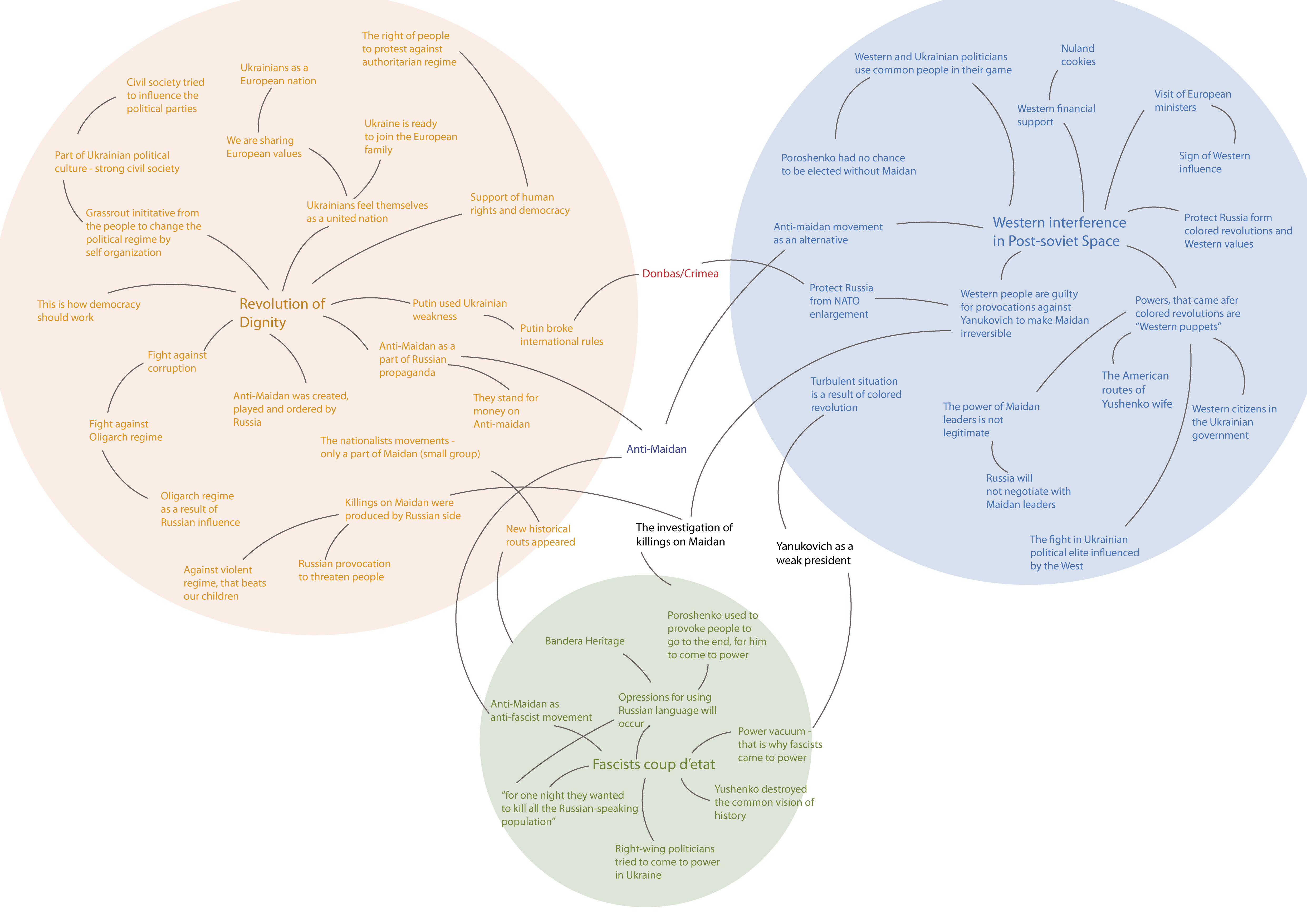The report “Gaps and Overlaps: Navigating through Contested German-Russian-Ukrainian Narratives” was released. It had been prepared by a tripartite working group, that included representatives from Russia, Germany and Ukraine. The workshop on drafting the text was initiated by three organizations: Institute of Law and Public Policy (Russia), Inmedio Peace Consult gGmbH (Germany), and the Centre of Public Initiatives — Ideas for Change (Ukraine). Russian International Affairs Council (RIAC) was represented in the working group by Ekaterina Chimiris, RIAC Program Manager.
Joint Report of the Institute of Law and Public Policy (Russia), Inmedio (Germany), and the Centre of Public Initiatives — Ideas for Change (Ukraine)
The report “Gaps and Overlaps: Navigating through Contested German-Russian-Ukrainian Narratives” was released. It had been prepared by a tripartite working group, that included representatives from Russia, Germany and Ukraine. The workshop on drafting the text was initiated by three organizations: Institute of Law and Public Policy (Russia), Inmedio Peace Consult gGmbH (Germany), and the Centre of Public Initiatives — Ideas for Change (Ukraine). Russian International Affairs Council (RIAC) was represented in the working group by Ekaterina Chimiris, RIAC Program Manager.
The group of 18 experts analyzed and reflected on German, Russian and Ukrainian narratives in the collective experience regarding the most important historical events. The following topics were chosen as historical triggers for analysis and discussion: the Holodomor, dissolution of the Soviet Union in 1991, NATO and EU Enlargement, Euromaidan 2013–2014, conflict resolution in Crimea and Donbas.
This consensus paper shows the results of the respective group discussions reconstructing the narratives on the topics. The aim was not to agree on one narrative, rather, the aim was to show a variety of approaches to key historical events. This approach follows a rather long-term strategy. Its key aim is to show the opponent’s position to the parties to conflict, which ultimately should contribute to the growth of trust and better understanding of the positions of all parties involved. The authors and organizers of the mediative dialog are open to negotiation, and will be glad if the report results in wide discussion at the international level.
GAPS AND OVERLAPS. Navigating through contested German-Russian-Ukrainian narratives, 1.6 Mb




